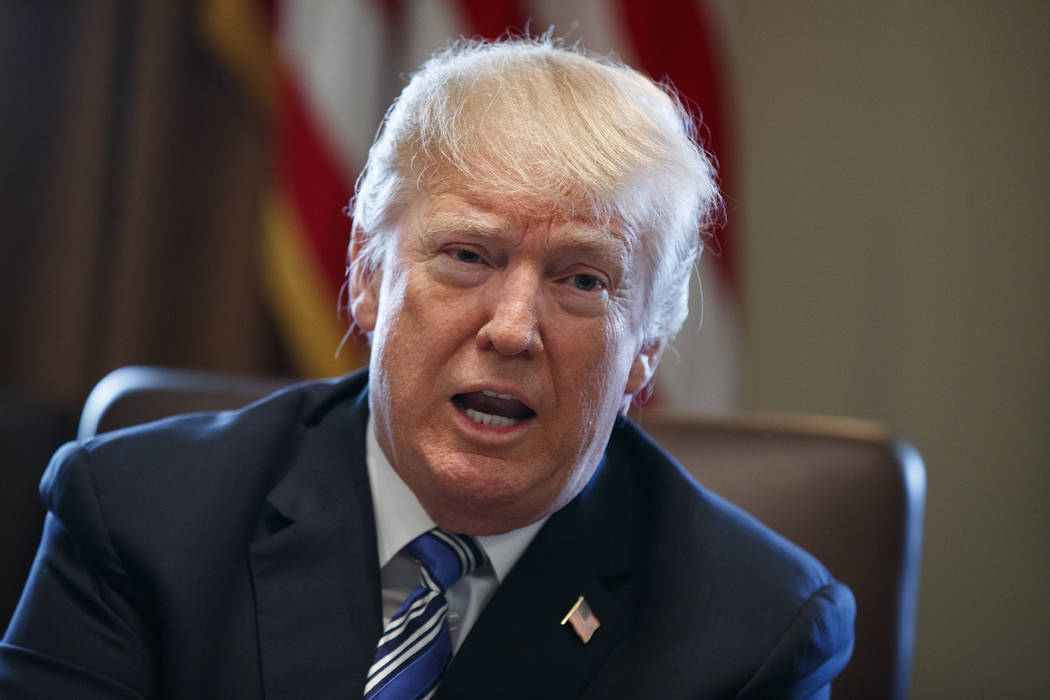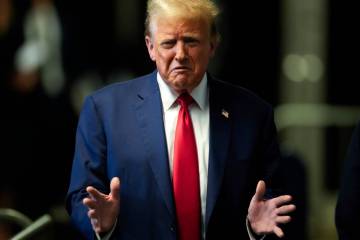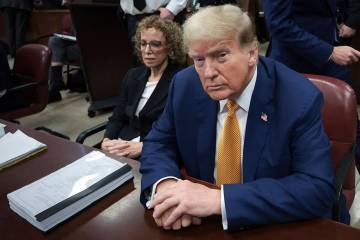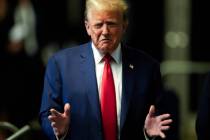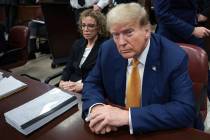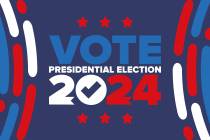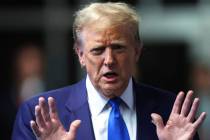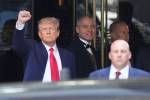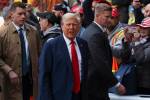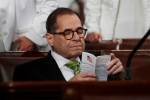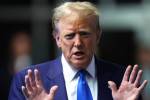US sanctions Russians for election interference, other cyberattacks
WASHINGTON — After months of lackluster criticism toward Russia for its interference in the 2016 elections, President Donald Trump said “nyet” to Moscow on Thursday.
His Treasury Department announced sanctions against five Russian entities and 19 individuals for their roles in destructive cyberattacks and efforts to undermine the election process.
Treasury Secretary Steven Mnuchin said the sanctions were designed “to address the ongoing nefarious attacks emanating from Russia” and “to hold Russian government officials and oligarchs accountable for their destabilizing activities by severing their access to the U.S. financial system.”
Thursday’s action freezes any assets the individuals and entities may have in the United States and bars Americans from doing business with them.
According to the Treasury Department, destructive Russian cyber actors attacked the U.S. energy sector, water, aviation and critical manufacturing sectors. During a briefing with reporters, a senior national security official stated that these sanctions were in response to a number of cyberattacks, including the 2016 NotPetya malware attack, which caused billions in damages in the United States, Europe and Asia.
The new sanctions target the Russian Internet Research Agency, four other Russia entities and 13 Russians charged criminally last month by Special Counsel Robert Mueller, who has been investigating Russian meddling in the 2016 presidential race.
Trump has called the probe a “witch hunt” as he insists there was no collusion between Russian officials and his presidential campaign, as some critics contend.
“The fact that the administration has issued sanctions against individuals and entities indicted by Special Counsel Mueller proves that this investigation is not a ‘witch hunt’ as the president and his allies have claimed,” Senate Minority Leader Chuck Schumer, D-N.Y., said Thursday.
Sweeping organization
Mueller’s 37-page indictment, issued last month, charged the Russians with conspiracy to defraud the United States with a sweeping organization that interfered with the 2016 presidential election. According to the special counsel’s office, the effort began in or around 2014 and continued into the present.
In June 2014, two Russians – Anna Vladislavovna Bogacheva and Aleksandra Yuryevna Krylova – took a trip around the United States that included stops in Nevada and eight other states. Both women are named in the Mueller indictment and Russian sanctions announcement.
While the Russian organization was vast, it also appeared to be politically unsophisticated. In June 2016, according to the indictment, conspirators posing as Americans online learned from a Texas think tank about “purple states like Colorado, Virginia & Florida” — even though the phrase is commonly used on cable news shows.
Thursday morning, the White House also released a statement that fingered Russia for the poisoning of former Russian agent Sergei Skripal, his daughter Yulia and a British police officer in the United Kingdom. The statement, issued jointly with the U.K., France and Germany, called the March 4 episode “the first offensive use of a nerve agent in Europe since the Second World War.”
The president’s delay in responding to the poisonings drew criticism from Democrats.
“We are taking days and weeks to react to things that are happening that need immediate, high-level and in some cases presidential words of comfort, words of concern, solidarity and tough talk at a minimum,” said Ellen Tauscher a former undersecretary of state under President Barack Obama.
Tauscher told the Review-Journal the time lag makes the United States look “like a third-world country.”
Tougher on Russia
Asked if he thought Russia was behind the U.K. attack, Trump answered, “It looks like the Russians were behind it. Something that should never, ever happen. And we’re taking it very seriously, as I think are many others.”
James Carafano, a senior fellow at the conservative Heritage Foundation and a member of the Trump transition team, argued that Trump has been tougher on Russia than Obama. “Obama never did anything about Russian cyberactivity until virtually the end of his term. Everything Obama did, Trump has kept in place. Trump armed Ukraine in Georgia – that Obama never did.”
“I think he’s been tougher on Russia than the last regime,” said Mark Corallo, a GOP strategist who worked for and quit the Trump legal team. Trump’s efforts to supercharge the U.S. energy sector have been hard on Russian’s energy-dependent economy, he said.
But Rep. Adam Schiff, D-Calif., tweeted, “Treasury will finally punish Russian individuals who, for the most part, were already indicted or subject to sanctions. This from the President who said he was tougher on Russia than Obama. These sanctions will send a message to Russia, just not the one we want to send.”
Asked Thursday if the government considers Russian President Vladimir Putin a friend or foe, White House Press Secretary Sarah Sanders answered, “Russia’s going to have to make that determination.”
Contact Debra J. Saunders at dsaunders@reviewjournal.com or 202-662-7391. Follow Debra J. Saunders on Twitter.
Spy attack
"This use of a military-grade nerve agent, of a type developed by Russia, constitutes the first offensive use of a nerve agent in Europe since the Second World War. It is an assault on the United Kingdom's sovereignty and any such use by a state party is a clear violation of the Chemical Weapons Convention and a breach of international law. It threatens the security of us all."
-from U.S. joint statement with the U.K., France and Germany



